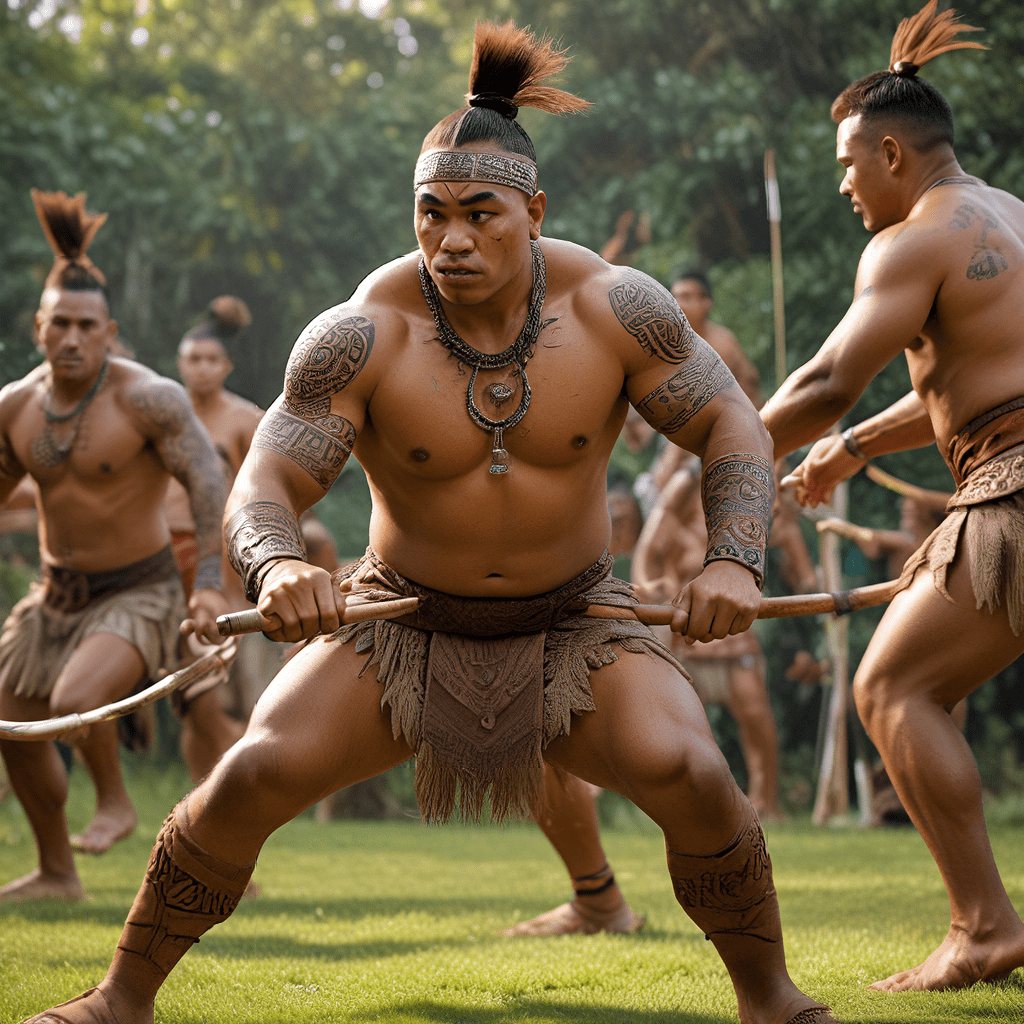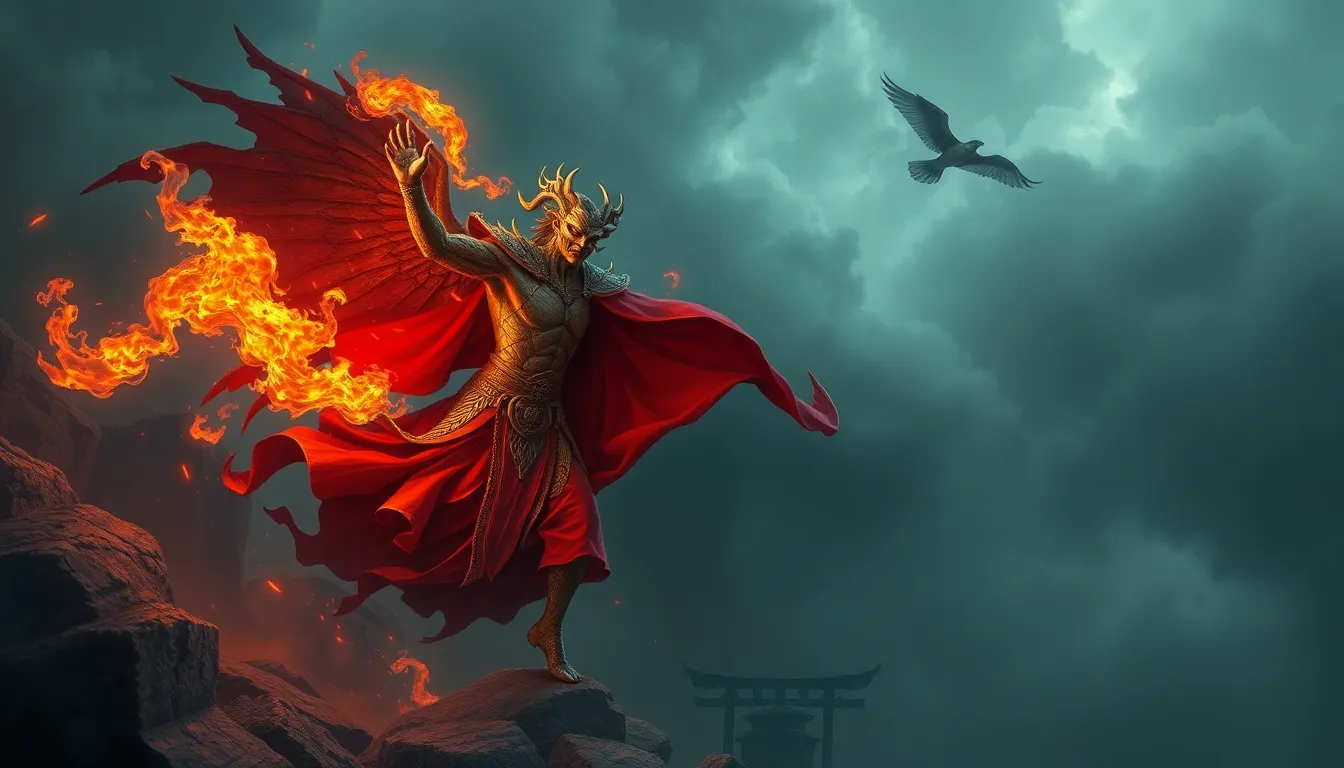The Legacy of Cultural Hero Myths in Contemporary Society
I. Introduction
Cultural hero myths are narratives that celebrate figures who embody the values, ideals, and aspirations of a society. These myths often reflect the collective identity and moral compass of a community, serving as sources of inspiration and guidance. In contemporary society, the legacy of these myths remains significant as they continue to shape our cultural landscape, influence individual behavior, and inform social movements.
This article will examine the historical context of cultural hero myths, their characteristics in modern society, their representation in popular media, and their psychological and social impacts. Furthermore, it will address critiques of hero myths and explore predictions for their future in an increasingly interconnected world.
II. Historical Context of Cultural Hero Myths
A. Origins of hero myths across different cultures
Hero myths have existed for millennia, originating from various ancient civilizations:
- Greek and Roman Mythology: Figures like Hercules and Achilles represented strength, bravery, and virtue, often facing supernatural challenges.
- Indigenous Cultures: Heroes such as Coyote and Raven in Native American stories embody trickster qualities, teaching moral lessons through their exploits.
- Asian Traditions: Characters like Sun Wukong from Chinese mythology exemplify intelligence and resilience against oppressive forces.
B. Role of hero myths in shaping cultural identity
Hero myths have played a crucial role in shaping cultural identity by:
- Providing role models for individuals to emulate.
- Instilling a sense of pride in shared heritage and values.
- Facilitating the transmission of cultural norms and ethical standards across generations.
III. Characteristics of Modern Cultural Heroes
A. Traits and attributes that define contemporary heroes
Modern cultural heroes often possess traits such as:
- Resilience in the face of adversity.
- Empathy and a commitment to social justice.
- Diversity, representing various backgrounds and experiences.
B. Comparison to traditional hero archetypes
While traditional heroes often exhibit idealized traits, contemporary heroes may embody flaws and complexities that make them relatable. This shift reflects societal changes, where imperfections are acknowledged and explored.
C. The impact of media representation on the perception of heroes
The portrayal of heroes in media, especially through films and television, has a profound impact on public perception. Hero narratives are often simplified, creating a binary of good versus evil, which can obscure the nuanced realities of heroism.
IV. Cultural Hero Myths in Popular Media
A. Analysis of modern cinema and literature
Modern cinema and literature have embraced hero myths, with genres like superhero films and fantasy novels dominating popular culture. Iconic characters such as:
- Spider-Man, who embodies the struggle of balancing personal responsibility with societal expectations.
- Katniss Everdeen from “The Hunger Games,” a symbol of rebellion against tyranny.
B. The role of video games and interactive media in hero myth-making
Video games have created opportunities for players to engage with hero narratives actively, allowing for personal investment in the hero’s journey. Titles like “The Legend of Zelda” and “God of War” offer immersive experiences that encourage players to embody heroic ideals.
C. Case studies of iconic modern heroes and their narratives
Case studies of characters like Wonder Woman and Black Panther illustrate how modern narratives address issues of gender, race, and identity, reflecting societal values and challenges.
V. The Psychological Impact of Hero Myths
A. Exploration of how hero myths influence personal identity and values
Cultural hero myths provide frameworks for individuals to understand their identity, often serving as a mirror for personal aspirations and values. They encourage individuals to strive for excellence and contribute positively to society.
B. The role of heroes in shaping moral and ethical frameworks
Heroes often embody ethical principles that guide societal behavior, promoting values such as:
- Integrity
- Courage
- Compassion
C. Psychological effects of hero worship on individuals and communities
Hero worship can have both positive and negative effects. While it can motivate individuals to pursue noble causes, it may also lead to unrealistic expectations and disillusionment when heroes fail to meet societal standards.
VI. Social Movements and Cultural Heroes
A. The emergence of real-life heroes in social justice movements
In contemporary society, real-life figures such as Martin Luther King Jr., Malala Yousafzai, and Greta Thunberg have emerged as cultural heroes in social justice movements, inspiring collective action and change.
B. How cultural hero myths inspire activism and change
Hero myths often serve as rallying points for activism, providing narratives that galvanize communities and promote social movements. They help frame struggles for justice and equality in a way that resonates with the public.
C. The interplay between myth and reality in portraying social heroes
The line between myth and reality can be blurred; while these figures are revered, it is essential to acknowledge their human imperfections and the complexities of their journeys.
VII. Critiques of Hero Myths in Contemporary Society
A. Examination of the limitations and potential harmful effects of hero myths
Critiques of hero myths highlight their potential to oversimplify complex issues and promote unrealistic expectations. They may inadvertently perpetuate stereotypes or exclude marginalized voices.
B. The rise of anti-heroes and subversion of traditional narratives
The emergence of anti-heroes such as Dexter Morgan from “Dexter” or Walter White from “Breaking Bad” challenges traditional notions of heroism and morality, reflecting a more nuanced understanding of human behavior.
C. Discussions on inclusivity and representation in hero myths
There is a growing demand for more inclusive and diverse representations of heroes that reflect the varied experiences of society. This includes recognizing the contributions of women, people of color, and LGBTQ+ individuals in hero narratives.
VIII. The Future of Cultural Hero Myths
A. Predictions for the evolution of hero narratives in the digital age
As technology continues to evolve, hero narratives will likely shift towards more interactive and participatory forms, allowing audiences to engage with stories in unprecedented ways.
B. The impact of global connectivity on cultural hero myths
Global connectivity will enable the exchange of hero narratives across cultures, leading to hybrid forms of heroism that reflect a broader spectrum of human experiences and values.
C. Potential for new forms of heroism in a changing world
In a rapidly changing global landscape, new forms of heroism may emerge, emphasizing collaboration, environmental stewardship, and social responsibility, aligning with contemporary challenges.
IX. Conclusion
In conclusion, cultural hero myths remain a significant aspect of contemporary society, shaping identities, guiding values, and inspiring movements for change. They reflect our collective aspirations and challenges while offering frameworks for understanding our world.
As we engage critically with these narratives, it is essential to recognize their complexities and implications for future generations. By fostering inclusive representations and embracing diverse hero stories, we can cultivate a richer cultural landscape that honors the multifaceted nature of heroism.
X. References and Further Reading
For those interested in exploring the topic of cultural hero myths further, the following literature is recommended:
- Campbell, Joseph. “The Hero with a Thousand Faces.”
- Beard, Mary. “Laughter in Ancient Rome: On Joking, Trust and Community.”
- Ong, Walter J. “Orality and Literacy: The Technologizing of the Word.”
- Brown, Dan. “The Da Vinci Code,” for a modern take on myths and heroism.
Academic studies and articles that delve into the impact of hero myths can provide deeper insights into their relevance in our lives today.




